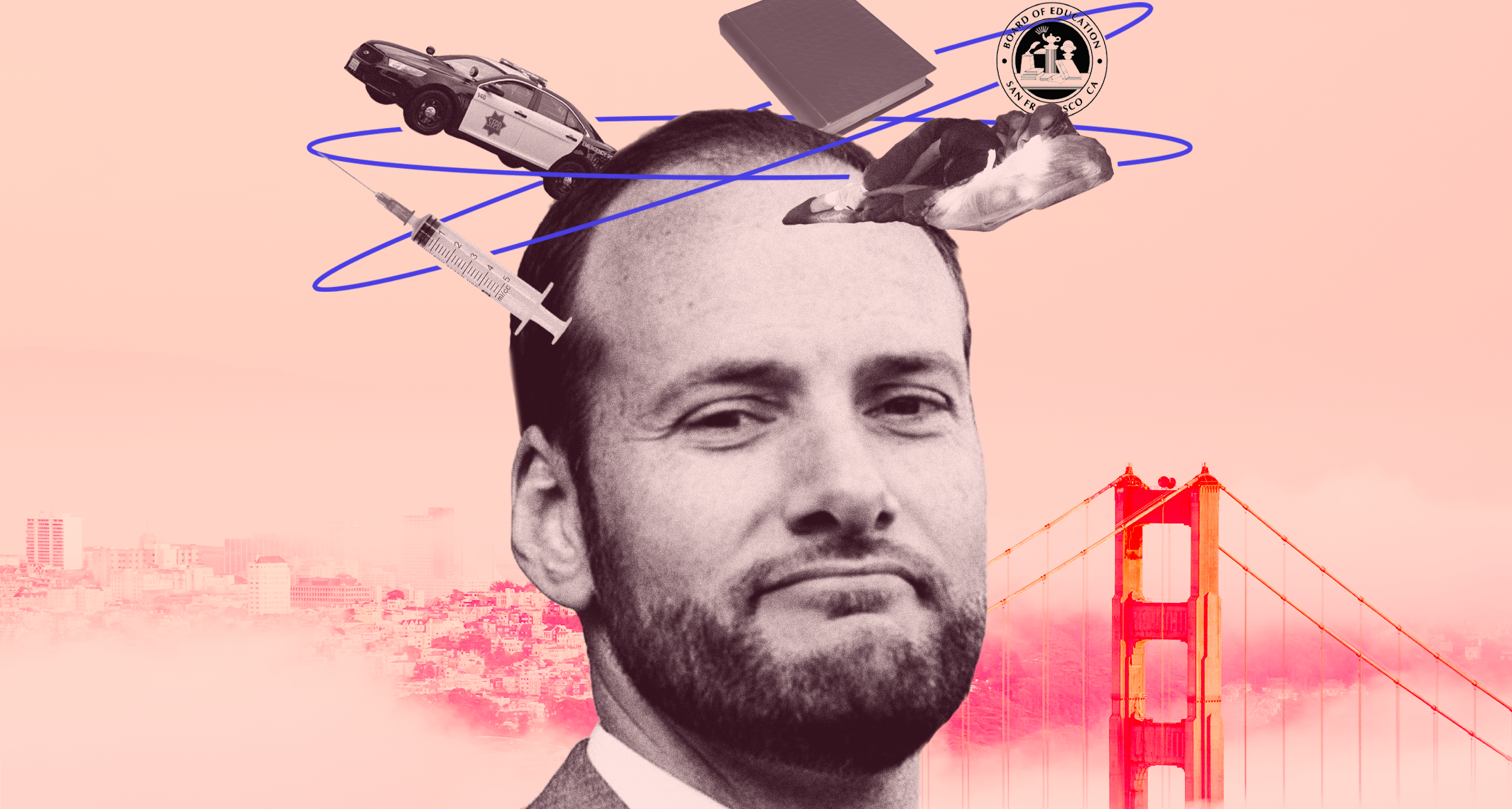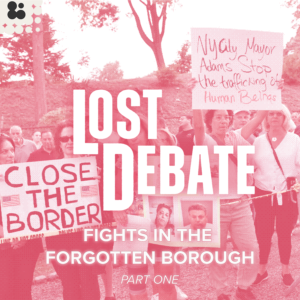This article originally appeared on our substack
Ronald Reagan famously said that “if you’re explaining, you’re losing.” He was speaking to an unfortunate truth of politics: a candidate prone to lengthy justifications of their record and policies is almost always the one who winds up giving the concession speech. A campaign should resonate with the core instincts and perceptions of voters, not attempt to change them. The political graveyard is filled with politicians who’ve tried to “educate” the electorate.
San Francisco’s (former) district attorney Chesa Boudin has been doing a lot of educating lately. In the lead-up to Tuesday’s overwhelmingly successful effort to recall and remove him from office, Boudin had been frantically trying to change the prevailing narrative about his tenure as San Francisco’s top prosecutor. Speaking to the San Francisco Chronicle days before the election, he implored voters to ignore the noise and trust the experts:
You know, the most important thing is for voters to recognize that everybody who they trust, who has done the research, who has dug in to look at the issues, at my record is saying, “Reject the recall. Vote no on Proposition H.” . . . [Y]ou look at what Donald Trump did at the national level, and basically he lied over and over and over again, but he did it loud enough and consistently enough and got enough other people in places to repeat those lies, that people started doubting things like vaccines among many, many other things that are basic incontrovertible science. We have the same problem here in San Francisco with the false information being spewed by this recall campaign.John Doe
The Chronicle interviewer, no doubt prepared for Boudin’s misinformation rejoinder, responded with a quote from a frustrated reader:
He seems to just want to dismiss us all, meaning your critics, as Republicans. His arrogance and unwillingness to try and understand the perspective of middle class, moderate San Franciscans has only augmented our desire to oust him.John Doe
Faced with this constituent complaint, Boudin, normally confident and unyielding with critics, retreated to half-excuses and apologies, saying he’s “certainly made mistakes,” faced a “steep learning curve,” had “never been in elected office,” and had “never been a prosecutor before.” Not exactly the closing argument of a strident revolutionary.
A Rise in Crime?
Boudin and his supporters had hoped to convince voters that his reforms were working, and that crime wasn’t spiking anywhere near the levels suggested by his critics. In support of this claim, Boudin comes back to a few compelling data points, most notably that overall reported crime in the city has fallen since he took office (including rapes and assaults), and that he’s filed criminal charges at a similar rate to his predecessor. Critics counter that he’s presided over a drop in convictions from 60% to 39%, a drop his supporters attribute to the district attorney’s unprecedented diversion of defendants to alternative rehabilitation programs, an initiative he ran on.
Boudin supporters are also quick to note that the police shoulder much of the blame—clearing just 6% of the city’s property crimes in 2020, more than eight percentage points lower than the national average (a case is considered cleared if a suspect is arrested and charged).
Boudin’s critics counter that “reported crime” and “actual crime” aren’t always the same. There’s a widespread perception in the city that many residents had given up on calling the police for certain incidents that they thought the DA’s office wouldn’t prosecute. This is particularly true of drug-related crimes, so-called “quality of life” crimes, and petty theft. Boudin, to his credit, acknowledges the limits of the data, telling the Atlantic that one “can cherry-pick statistics that make it look like crime is down or up” and that there’s “a disconnect between what the data shows us and what people feel.”
Supporters of the recall also point to the fact that homicides—crimes that by their very nature are almost always reported—have risen 37% since Boudin took office. And it was Boudin’s botched handling of a series of high-profile homicide cases that would go on to embody for the public the costs of his reforms. The case that came to haunt him the most involved a man who struck and killed two women with a stolen car in downtown San Francisco on New Year’s Eve 2020. The man was a parolee with a 25-year-long rap sheet who’d been arrested five times in the previous six months. But Boudin had declined to press charges against him, citing the fact that the man “worked hard and got his GED in jail.” The mother of one of the victims was incredulous, arguing that a GED “has nothing to do with whether this person is rehabilitated and ready to be put back into society.”
No phenomenon has dogged Boudin more than the record number of property crimes. Since he took office, burglaries have increased 45%, rising to the city’s highest levels since the mid-1990s. San Francisco has suffered from the highest property crime rate among major American cities for four of the past six years, even while the national rate was dropping all the while. Here’s the Wall Street Journal describing what this means in concrete terms:
In the Castro, the neighborhood where Cliff’s is located, shops have recorded nearly 100 instances of smashed windows and doors that cost $170,000 to repair since the beginning of 2020, according to the neighborhood’s merchant association. . . . Smashed storefronts are so common that the city launched a program to fix them with public money. Car owners leave notes declaring there is nothing of value in their vehicles, or leave their windows open to save themselves from broken glass.John Doe
This crisis is no doubt related to the city’s twin epidemics of drug addiction and homelessness, problems that were on the rise before Boudin took office and show no signs of subsiding. Over 4,000 people sleep on the streets of the city every night, a phenomenon that became all the more noticeable as the pandemic cleared the streets of tourists and commuters.
Drug dealing and use in the city is conducted out in the open with little fear of prosecution. The city’s prioritization of treatment and decriminalization has yet to stem the tide of Fentanyl overdoses, which killed more San Franciscans last year than COVID-19.
There’s a debate over whether it’s drug addicts or organized gangs who are driving property crime (the data suggest the latter play a larger part), but the Hamsterdam-like conditions have grown to symbolize the perception of lawlessness and impunity under Boudin’s regime. Boudin was clear from the start that he wasn’t going to prioritize drug crime prosecutions, and he’s never deviated from that promise. In 2021, his office managed just three convictions for drug-dealing compared to 90 such convictions under his predecessor in 2018.
Right Wing, Big Tech Conspiracy?
Boudin maintained to the very end that Republican tech billionaires were driving the effort against him. He and his supporters point to Republican hedge fund manager William Oberndorf, who gave at least $600,000 to a political action committee (PAC) driving the recall. The real estate firm Shorenstein chipped in another $633,000 to the PAC, and there’s a long list of local business and tech leaders who’ve lined up against him.
The problem for Boudin is that he and other fellow progressive prosecutors have courted massive sums from tech leaders, celebrities, and other billionaires. George Soros and his groups have spent more than $40 million over the past decade on campaign contributions in prosecutors’ races. One progressive reformer candidate in Arkansas, Alicia Walton, received $321,000 from Soros for her race. Boudin counts among his supporters crypto billionaire Chris Larsen, who donated $100,000 in opposition to the recall. He also hasn’t been shy about trotting out the endorsements of rich celebrities like John Legend who don’t live in San Francisco.
Boudin’s story also fails to account for the scores of loyal Democrats who’ve been central to the recall effort. That includes Mary Jung, former chair of the San Francisco Democratic Party, and Lilly Rapson, a lifelong Democrat, who managed the recall.
His entire line of attack, though predictable, hasn’t done much to solve the widespread impression that Boudin is defensive and stubborn. You get the impression that everyday citizens, like the frustrated Chronicle reader quoted above, are sick of being dismissed as naive pawns in a right-wing conspiracy.
Recall Frenzy
It’s tempting to compare Boudin to the targets of San Francisco’s other recent high-profile recalls: successful efforts in 2021 to remove three members of the local school board. That recall largely focused on the board’s failure to bring any urgency to the task of reopening schools, a story I covered extensively in a podcast episode (listen to it here), where I interviewed parents, activists, and the now-ousted board chair. Like Boudin, those board members deflected widespread discontent as a product of a right-wing conspiracy and failed to take their constituents’ concerns seriously.
Boudin has certainly dismissed criticism, but he’s been significantly more substantive (and less comically inept) than the recalled school board members. It was hard to parse out a compelling vision from the school board members, who had a confusing and ever-changing policy platform that essentially boiled down to antiracist bromides (that were all the more puzzling given some of the racist behavior of at least one of their members).
But, like him or not, Boudin proposed and carried out dramatic change. Here’s the Atlantic’s Annie Lowrey:
Boudin has ended cash bail; ceased prosecuting cases in which the evidence came from “pretextual” traffic stops, such as when a police officer pulls over a car for a broken taillight and ends up booking the driver after finding drugs; stopped using “enhancements” that add years to the sentences of gang members; quit using the state’s “three strikes” law; filed charges against a San Francisco police officer accused of brutality; instituted a commission to identify and overturn wrongful convictions; cut the number of young people incarcerated in half and reduced the pretrial jail population. He has also expanded the use of diversion and restorative justice programs.John Doe
Some argue this recipe was doomed to fail from the start. “The problem is, many progressive policies don’t appear to be very effective,” commented Jonathan Weber, editor-in-chief of the San Francisco Standard. “I don’t think this is a blip.” Weber may be right, but we’ll never truly know because Boudin’s ambition ran up against his lack of managerial skill. He never seemed to get his footing as his staff and voters turned on him. He presided over colossal turnover in his office, losing 59 of his prosecutors (roughly 40%) by October 2021.
When you examine the statements from those who left his office, you get the sense that Boudin never embraced the role of prosecutor. “Chesa has a belief that your approach should be defendant-centered [and that] everything should revolve around what’s best for the defendants,” complained one former prosecutor, adding, “He’s never let go of his role as the public defender.” His sympathy for defendants is understandable given his family history (his parents, famed Weather Underground radicals Kathy Boudin and David Gilbert, were locked up for nearly his entire life), but it’s led victims and their families to lose trust in him.
That speaks to one key similarity between him and the ousted school board, one that gets to the heart of the lessons progressives should take from both recalls. Boudin was big on promises and short on competence. He presided over dramatic change, but failed to prepare his office, the city’s wider social safety net, and, most importantly, average citizens for this change. If he could do it all over again, I wonder whether he’d go more slowly and listen more, adjusting course based on lessons learned.
We learned Tuesday that the opposition to Boudin’s ideas went deeper than he and his supporters ever acknowledged. An eclectic coalition voted them out of office, including such ideologically diverse groups as police unions, Republicans, CEOs, small business owners, moderate Democrats, and even some frustrated progressives. Alliances like this are forming across the country to replicate the San Francisco playbook, triggering referendums to unseat prosecutors in Virginia, Colorado, and, most notably, in Los Angeles, where critics of district attorney George Gascón are racing to collect the required half a million signatures by July 6. These concerned citizens are demanding competence and results in all areas of government, not just public safety.
They’re also looking for humility. When I think of San Francisco’s failed progressives, I keep coming back to that word. Boudin never stopped selling his vision and never truly considered the possibility that opposition to him was legitimate. I’ve seen this attitude with many progressives I’ve worked with across the country: the belief that anyone who opposes their vision is a neoliberal shill or a heartless right-winger. Boudin parroted this line even after the polls closed and it became clear he lost, giving a defiant election night speech about the shadowy forces working against him. Like many a failed revolutionary, even when the people had spoken, he couldn’t bring himself to listen to what they had to say.




